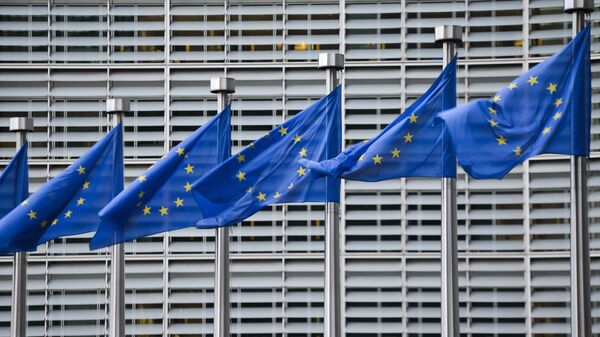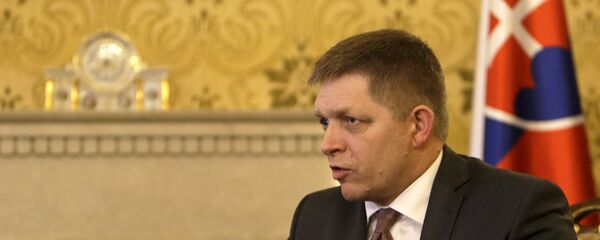"On 21 December 2017, the Council prolonged economic sanctions targeting specific sectors of the Russian economy until 31 July 2018," the statement read.
A political decision to prolong anti-Russian economic sanctions was achieved at the EU summit in Brussels on December 14. The sanctions would otherwise expire at the end of January 2018.
READ MORE: WATCH Best Episodes of EU Farmers Reacting to Sanctions War With Russia
Speaking at the December 14 meeting, European Council President Donald Tusk praised the prolongation of sanctions, stressing the unity of the bloc. Angela Merkel, who delivered a speech at the summit, also advocated for the prolongation of the restrictions. She stressed that the lifting of sanctions "would send the wrong signal" to Russian authorities, according to EU Observer.
EU united on roll-over of economic sanctions on Russia.
— Donald Tusk (@eucopresident) 14 декабря 2017 г.
The restrictions limit Russia's access to the EU financial markets and target the country's financial, energy and defense industries. Russia has responded by introducing a food embargo on countries that targeted it with restrictions, warning that the West's sanctions are counterproductive.
Since the adoption, the EU has been prolonging restrictive measures every six months. Brussels has linked the lifting of sanctions to the implementation of the 2015 Minsk agreements that stipulate the ceasefire in Eastern Ukraine and withdrawal of equipment from the frontline.
READ MORE: Moscow Faces Information Confrontation Aimed to 'Strangle' Russia — Kremlin
The cessation of hostilities, however, has been repeatedly breached, with Ukrainian government forces and Donbass militias accusing each other of violating it. Russian president Vladimir Putin has said that the efficiency of the Minsk Accords is "low because of the unconstructive position of the representatives of today's Kiev authorities."



